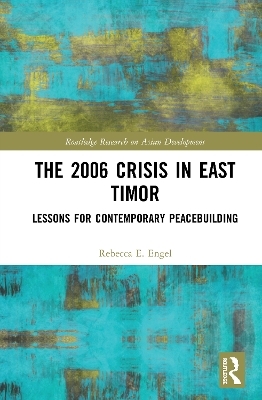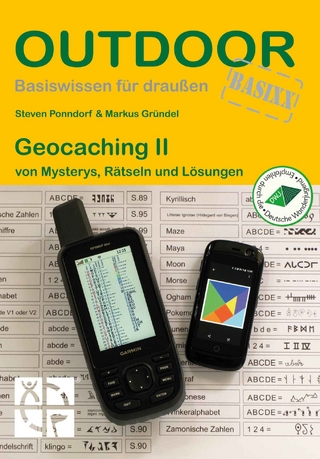
The 2006 Crisis in East Timor
Lessons for Contemporary Peacebuilding
Seiten
2020
Routledge (Verlag)
978-1-138-59064-9 (ISBN)
Routledge (Verlag)
978-1-138-59064-9 (ISBN)
This book presents evidence that international interventions in Timor-Leste contributed to the violent political conflict in 2006, four years after independence from Indonesia, and seeks to guide policy-makers and practitioners working to prevent conflict in war-to-peace transitions.
This book argues that the international community must share responsibility for contributing to the conditions that resulted in violent conflict in Timor-Leste, four years after it declared independence from Indonesia. Its failure to tailor interventions to Timor-Leste’s specific political economy and conflict dynamics distanced the state from its citizens and undermined its capacity to forge a political settlement founded on a robust social contract.
At a time in which conflict-affected states are receiving unprecedented attention and peacekeeping operations and humanitarian emergencies are becoming increasingly complex, this book argues that radical changes are urgently required in the way the international community operates in these environments. The findings are rooted in an examination of the mechanisms used by international development actors in Timor-Leste between 1998 and 2006. In bringing together wide-ranging perspectives, the author shows that international actions cannot be separated from the local political and socio-economic context, demonstrating that interventions are never ‘apolitical’ and that peacebuilding must be intentional. Indeed, political settlements premised on a robust social contract should not be taken for granted anywhere. The impact of increasing disenfranchisement, mistrust in institutions and structural inequalities evident in the global North suggest that lessons from peacebuilding in Timor-Leste are relevant far beyond its shores.
This book is essential for students and researchers in the fields of development studies, international political economy, peacebuilding and conflict resolution, and for practitioners and policymakers striving to advance peace.
This book argues that the international community must share responsibility for contributing to the conditions that resulted in violent conflict in Timor-Leste, four years after it declared independence from Indonesia. Its failure to tailor interventions to Timor-Leste’s specific political economy and conflict dynamics distanced the state from its citizens and undermined its capacity to forge a political settlement founded on a robust social contract.
At a time in which conflict-affected states are receiving unprecedented attention and peacekeeping operations and humanitarian emergencies are becoming increasingly complex, this book argues that radical changes are urgently required in the way the international community operates in these environments. The findings are rooted in an examination of the mechanisms used by international development actors in Timor-Leste between 1998 and 2006. In bringing together wide-ranging perspectives, the author shows that international actions cannot be separated from the local political and socio-economic context, demonstrating that interventions are never ‘apolitical’ and that peacebuilding must be intentional. Indeed, political settlements premised on a robust social contract should not be taken for granted anywhere. The impact of increasing disenfranchisement, mistrust in institutions and structural inequalities evident in the global North suggest that lessons from peacebuilding in Timor-Leste are relevant far beyond its shores.
This book is essential for students and researchers in the fields of development studies, international political economy, peacebuilding and conflict resolution, and for practitioners and policymakers striving to advance peace.
Rebecca E. Engel is a Lecturer at the University of York, UK.
Preface: why this book?
Acknowledgements
1 Introduction
2 Peace, violence and the political economy of development: critical concepts in post-war recovery
3 Political settlement interrupted: Part I – Portuguese colonialism
4 Political settlement interrupted: Part II – Indonesian occupation
5 The mechanics and conceptualization of state-building
6 The practice of aid: the agriculture sector
7 The practice of aid: the private sector and CSOs
8 The 2006 political crisis revisited
9 Implications for contemporary peacebuilding
Postscript
Index
| Erscheinungsdatum | 10.09.2020 |
|---|---|
| Reihe/Serie | Routledge Research on Asian Development |
| Zusatzinfo | 1 Halftones, black and white; 1 Illustrations, black and white |
| Verlagsort | London |
| Sprache | englisch |
| Maße | 156 x 234 mm |
| Gewicht | 476 g |
| Themenwelt | Naturwissenschaften ► Geowissenschaften ► Geografie / Kartografie |
| Sozialwissenschaften ► Politik / Verwaltung ► Europäische / Internationale Politik | |
| Sozialwissenschaften ► Soziologie ► Spezielle Soziologien | |
| ISBN-10 | 1-138-59064-9 / 1138590649 |
| ISBN-13 | 978-1-138-59064-9 / 9781138590649 |
| Zustand | Neuware |
| Haben Sie eine Frage zum Produkt? |
Mehr entdecken
aus dem Bereich
aus dem Bereich
über eine faszinierende Welt zwischen Wasser und Land und warum sie …
Buch | Hardcover (2023)
dtv (Verlag)
CHF 33,55
von Mysterys, Rätseln und Lösungen
Buch | Softcover (2024)
Conrad Stein (Verlag)
CHF 16,90


